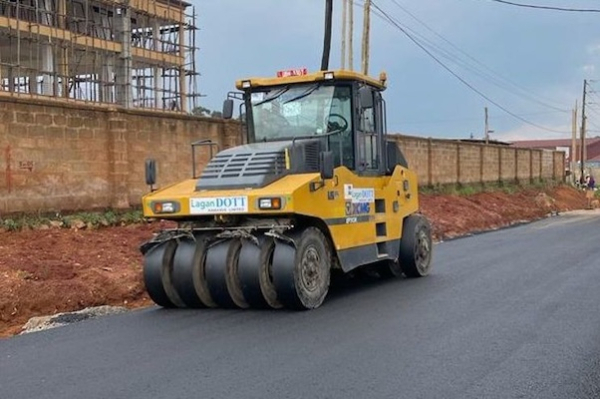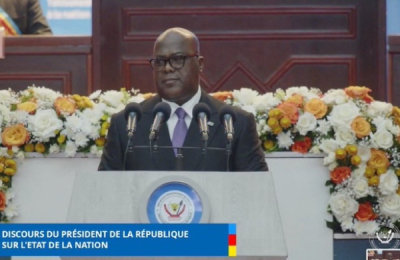Asphalting work on the Kasindi-Beni (80 km) and Beni-Butembo (54 km) road sections in North Kivu province will start in the first quarter of 2026. Steven Nyembo, site supervisor for Dott Services Ltd, the contracted company, made the announcement.
These construction efforts are part of a larger cross-border road project officially launched in June 2021 by the presidents of the Democratic Republic of Congo (DRC) and Uganda. The project aims to improve connectivity between the two countries, boost trade, and support peacebuilding efforts in eastern DRC. It also includes modernizing the Bunagana-Rutshuru-Goma road (89 km), bringing the total length of targeted routes to 223 km. The overall estimated cost is $551.6 million.
Dott Services Ltd is committed to financing 60% of the project, while the Congolese and Ugandan governments will each contribute 20%. The investment will be repaid through a toll system, offering reduced rates due to state contributions. The concession is set for a minimum of 15 years, with construction initially planned for three years, according to Congolese Infrastructure Minister Alexis Gisaro.
The project has faced numerous delays. Insecurity caused by M23 rebels slowed progress on the Bunagana-Rutshuru-Goma section. Work on the Kasindi-Beni-Butembo road was suspended for over a year due to non-compliance with contract clauses, particularly those related to the exemption of equipment imported from Uganda.
To overcome these obstacles, the DRC and Uganda signed an amendment to the initial agreement on October 16, 2024, which provided for tax exemptions on necessary equipment.
The project relaunched after a March 2025 visit by Uganda’s Minister of Public Works, General Edward Katumba Wamala. During his visit, authorities from both countries reaffirmed their commitment to completing the project.
Strategic Importance
The first phase of work, involving laterite on the Kasindi-Beni section, is 80% complete, according to Papy Minga, provincial director of the Roads Office in North Kivu. Preparations for asphalting are underway, with a stone crusher being installed, an asphalt plant expected, and stone quarries opened in Kilya (Ruwenzori sector) and Rugetsi.
This road is strategically important for several reasons. From a security perspective, it facilitates joint SHUJAA military operations conducted by the FARDC and the UPDF against ADF rebels. Economically, it serves as a key export route for agricultural products like coffee and cocoa to Uganda via the Kasindi border post. It also allows the import of consumer goods, including fuel, to Beni, Butembo, and surrounding areas.
As part of the relaunch, Major General Somo Kakule Evariste, the military governor of North Kivu, decided to reallocate toll revenues from these routes. Funds previously collected by road maintenance companies will now finance the rehabilitation of urban roads in Beni and Butembo, which had faced long delays due to budgetary constraints. Local sources indicate toll fees range from $2 to $20 depending on vehicle category.
Local populations eagerly await this infrastructure modernization. They see it as an opportunity to improve mobility, security, and economic development in this part of the Grand Nord.
Timothée Manoke (Intern)










